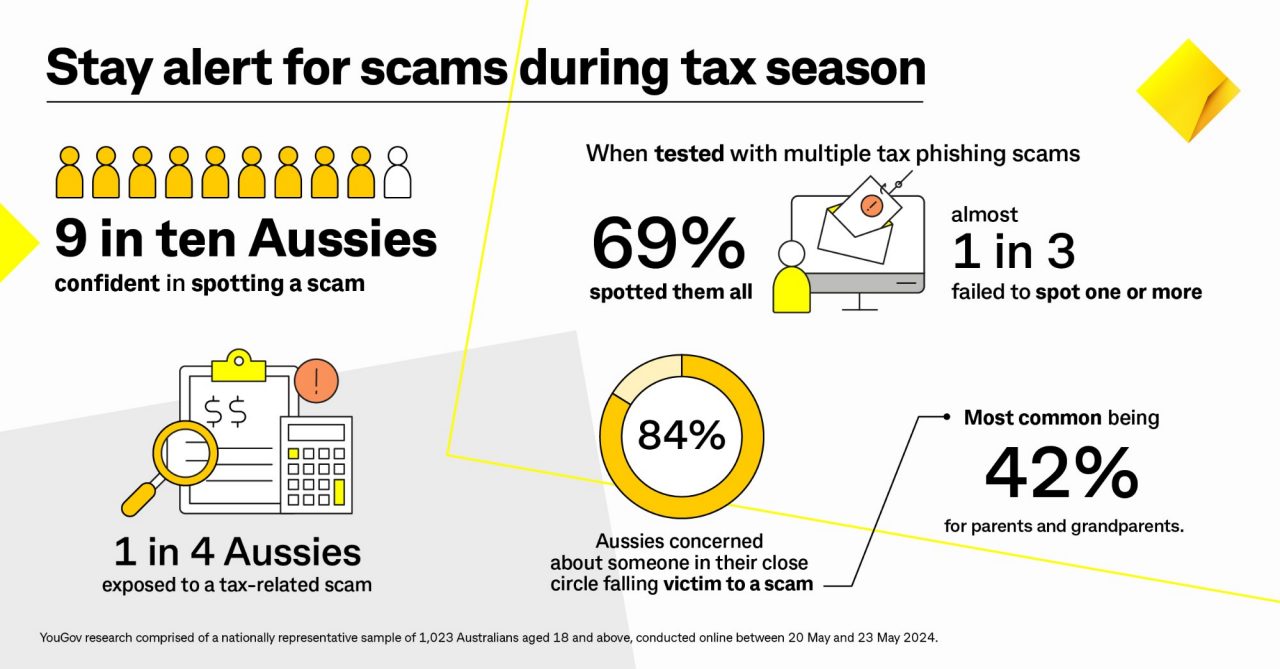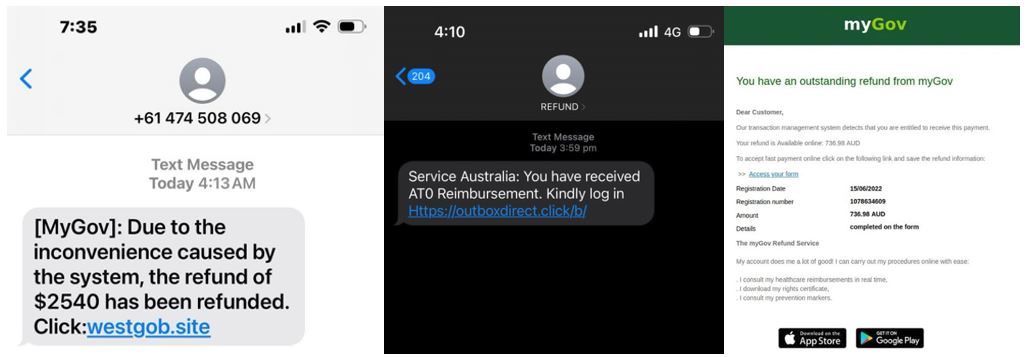The research also showed around one in four Australians have been exposed to a tax-related scam. As millions of people wait for a tax return over the next few months, scammers will be keen to capitalise on the moment.
SMS phishing scammers impersonate myGov and the Australian Tax Office (ATO) to “phish” for personal information, including bank card details. The link within the SMS will take the recipient to a fake website, which might look very real. There will be a place to enter their card details and then this unfortunately allows access to their money.
According to the National Anti-Scam Centre (NASC), phishing was the top reported scam type, followed by false billing scams, and identity theft.²
James Roberts, CBA’s General Manager of Group Fraud, said: “While it’s encouraging to see a majority of Aussies were confidently able to spot scams when tested, concerningly almost a third didn’t correctly spot all of them. As a nation, we’ve made good inroads into reducing the impact of scams, but we all need to stay vigilant and across the latest scam trends.
“Scammers are the most opportunistic criminals and will actively campaign to capitalise on tax season. Everyone should keep an eye out for text messages and emails impersonating myGov and the ATO. They may appear in a thread of legitimate messages from these organisations. The major red flag for this type of scam is the link, which differs considerably from the official myGov and ATO website addresses. If you’re unsure, contact the organisation on a verified phone number or via their official website or app, otherwise delete the text.”





